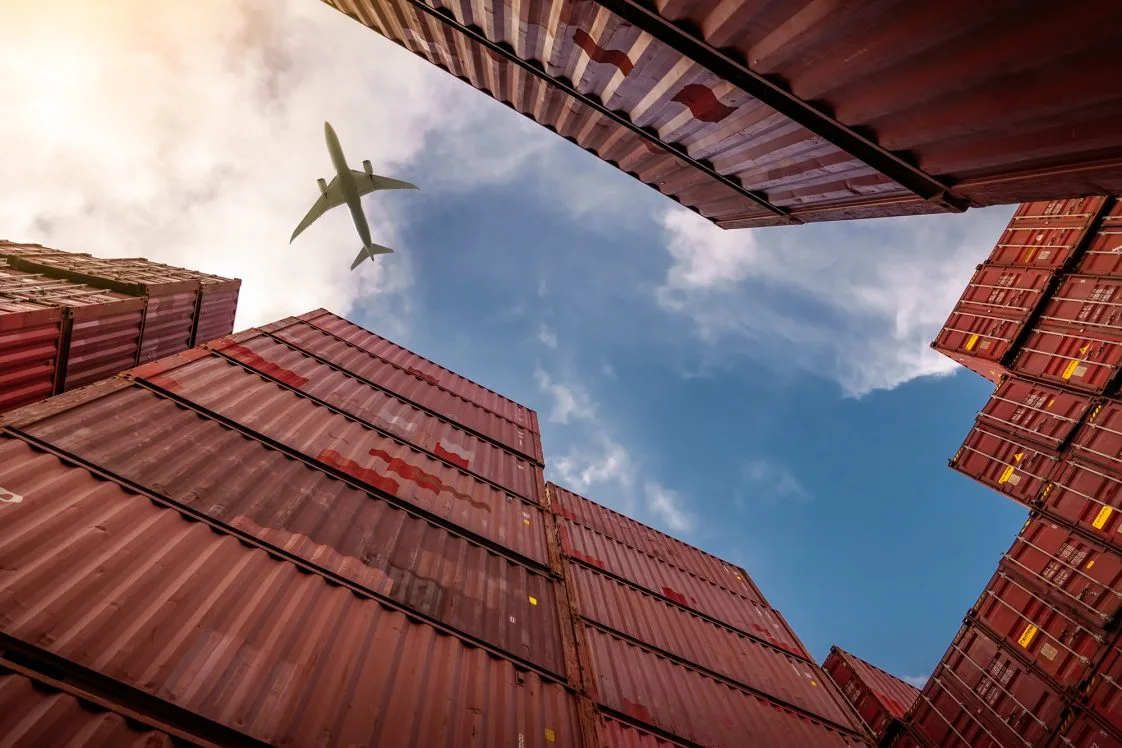How Growing Businesses Navigate Uncertainty with Cost-Effective Fulfillment
Uncertainty defined Q1 2025. While prevailing uncertainty poses challenges, modern brands can still navigate with cost-effective fulfillment.
Uncertainty defined the first quarter of 2025. And that uncertainty led to anxious consumers. In April, the University of Michigan’s consumer sentiment index fell to its lowest levels since the COVID-19 pandemic. This anxiety, driven by tariff changes, a recent report of a US economic contraction in Q1 2025, and concerns about inflation and unemployment, may hamper spending as consumers grow increasingly cautious.
Business leaders are also concerned with growing uncertainty. Sixty-two percent of CEOs predicted a recession or slowdown in the next six months due to changes in tariff policies and the market and trade repercussions. Retail Dive noted that small retailers and brands were particularly anxious, as they may not yet have the supply chain flexibility necessary to respond to tariff increases. Many larger retailers, like Costco and WIlliams-Sonoma, pulled inventories forward ahead of new tariffs. This will likely increase inventory holding costs and strain supply chains—at least in the near-term.
While prevailing uncertainty poses challenges, modern brands can still navigate it to grow and scale.
Brands Frontloading Inventories Need Warehouse Space Now
Many brands seek to frontload inventories ahead of tariffs to avoid price increases. The gamble could mean saving on tariff costs but could also spell out higher inventory holding costs over time if products don’t sell. Brands will require an optimized logistics network to hold and ship goods as they build their inventory buffer. Depending on how their current logistics network is designed, many brands may need to seek additional warehouse space to manage just-in-case inventory. This may require diversifying logistics partners and selecting solutions that offer flexible, pay-as-you-go warehousing.
Uncertainty Means Strategically Managing Costs
Economic volatility requires taking strategic risks and managing logistics costs carefully. Some brands may seek to consolidate and streamline elements of their supply chains, while others may look for flexible, cost-effective partnerships to both streamline costs and outsource non-core logistics activities. Additionally, some brands may seek to invest in or expand existing technologies to more accurately forecast demand and manage inventories.
Any strategy requires supply chain leaders to carefully examine their existing supply chains, technology portfolios, and partner network to determine the best short and long-term strategies for their businesses.
Current Fulfillment Models Challenge Modern Brands
Adding warehouse space and carefully managing costs may be near-term goals for many retailers, but they face existing fulfillment constraints that could create challenges. According to Radial’s survey of retail brands, 70% still rely on in-house fulfillment. The majority of modern brands rely on in-house fulfillment solutions with either multiple (70%) or single (59%) facilities for at least some of their fulfillment needs.
In-house fulfillment often works for emerging brands but creates challenges as these brands grow and operations become more complex. It’s resource intensive, requires capital to scale, and can distract brands from their core competencies. These issues are exacerbated by current and projected supply chain disruptions.
As retailers grow, they often seek new partners to solve fulfillment challenges and scale their supply chains. For modern brands, now may be the time to accelerate partnership plans to build supply chain resilience.
Long-Term Supply Chain Resilience May Require New Partners
As brands grow, rising operational complexity may require that they seek a third-party logistics (3PL) partner. Per Radial’s recent research, more than half of all surveyed brands commonly outsource fulfillment once they grow to $50M+ in revenue.
- 57% of organizations with $50-$100M in revenues outsource some or all of their fulfillment.
- 72% of organizations with $100-$150M in revenues outsource some or all of their fulfillment.
- 76% of organizations with $150M-$200M in revenues outsource some or all of their fulfillment.
Brands need logistics infrastructure that matches the pace of their growth. That’s where modern fulfillment strategies come into play.
Radial’s recent retailer survey findings show that nearly half of decision-makers (47%) struggle to scale fulfillment using their existing operations. They need configurable, cost-effective, and tech-enabled solutions. And these capabilities are especially critical when brands expand across channels while attempting to meet the rigorous demands of consumers.
While rising economic uncertainty may challenge retailers, modern brands can still navigate it, but they shouldn’t do it alone. Winning brands will either fortify already flexible supply chains or invest in the resources and partnerships necessary to build flexibility in the long-term. They will need to seek experienced logistics operators to help them build resilient, scalable supply chains. All while remaining cost-effective.
Navigate Uncertainty with Radial Fast Track
Radial has the solution for modern brands navigating today’s disruptive logistics landscape: Radial Fast Track. Radial Fast Track provides scalable, cost-effective fulfillment for modern brands, without upfront costs or long-term contracts.
Radial Fast Track can help retailers solve fulfillment bottlenecks and provide fast, reliable, and cost-effective fulfillment to customers:
- Fast, easy, pay-as-you-go storage: Get up and running with no upfront costs. No long-term contracts required. Perfect for brands seeking to frontload inventories amid tariff changes.
- Transition from in-house fulfillment to outsourced fulfillment: Onboard fast, with the ability to integrate in as little as a week—minimal resources required. We streamline fulfillment so that brands can focus on what they do best, knowing their customers get the experience they deserve.
- Faster, cost-effective shipping: Simplify delivery with Radial’s last mile solutions. We work with carriers to find the best balance of speed and cost.
- Expand your brand, grow, and scale: Connect with hundreds of DTC and B2B channel partners quickly and distribute seamlessly.
- Ditch returns headaches: Leverage streamlined technology and processes. Make returns easy.
Get started with fast, scalable, cost-effective fulfillment.

